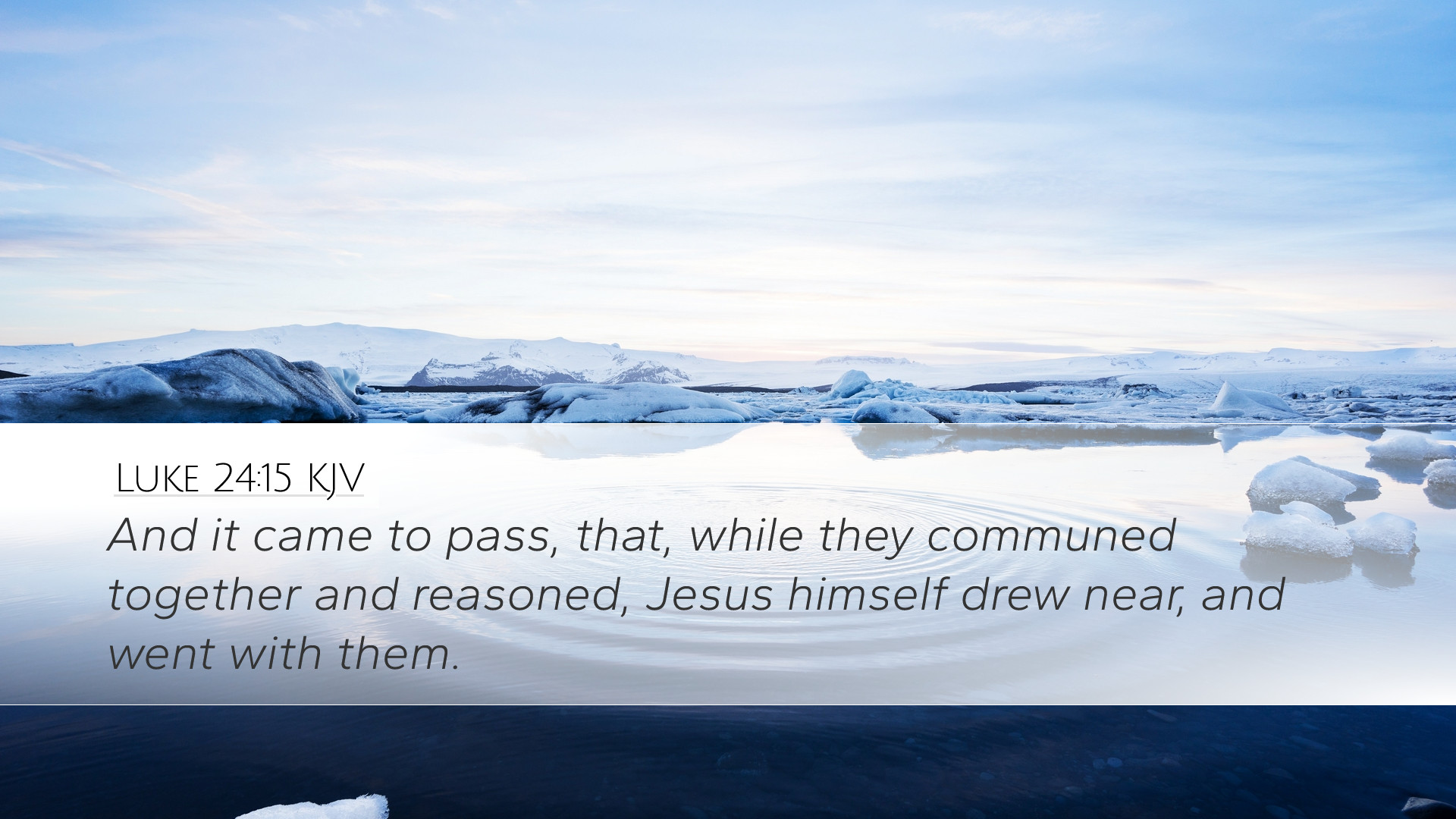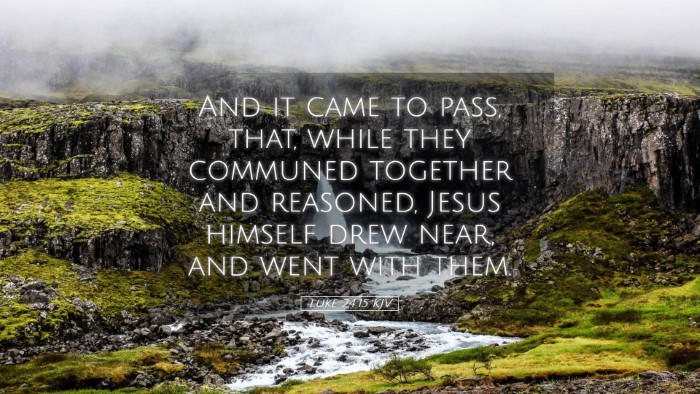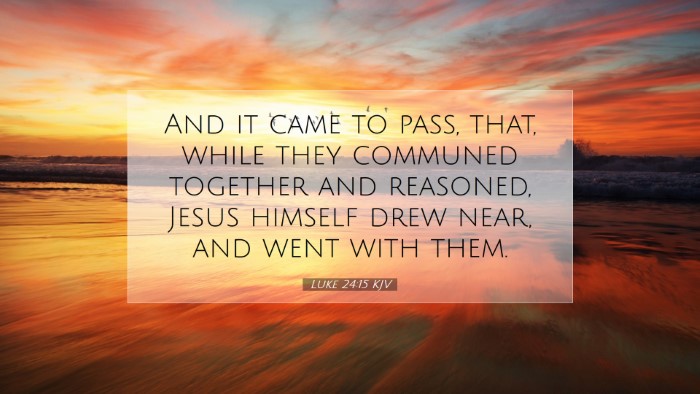Commentary on Luke 24:15
Luke 24:15 states:
"And it came to pass, that, while they communed together and reasoned, Jesus himself drew near, and went with them."
Context and Immediate Significance
This verse occurs in the context of the post-resurrection appearances of Jesus, specifically the encounter on the road to Emmaus. The significance of this encounter lies in the disciples' despondency and confusion following the crucifixion and purported resurrection of Jesus. The verse captures the moment of divine intervention where Jesus joins two of His followers in a conversation marked by sorrow and uncertainty.
Insights from Public Domain Commentaries
Matthew Henry's Commentary
Division of the Disciples: Matthew Henry emphasizes how this journey reveals the scattered nature of Christ’s followers after His death. The two disciples traveling to Emmaus represent a fragmented community of believers grappling with loss. This signifies the vulnerability that often accompanies a crisis of faith.
The Presence of Christ: Henry notes the importance of Jesus' presence in times of deep sorrow. His arrival is both unexpected and profound; He draws near to comfort those who feel abandoned. This exemplifies the promise that Christ is closest to His disciples in their times of need.
Albert Barnes' Notes on the Bible
The Act of Communing: Barnes points out that "while they communed together" highlights the importance of fellowship among believers. Their conversations are crucial as they wrestle with their doubts and hopes. This indicates that God often moves within the contexts of our discussions and deliberations.
The Surprise of Recognition: The text suggests that they did not initially recognize Jesus. Barnes elaborates that this signifies the spiritual blindness that can surround us in moments of despair. It is only when our eyes are opened—often through Scripture or revelation—that we can see Christ clearly in our circumstances.
Adam Clarke’s Commentary
Reasoning and Discussing: Clarke emphasizes the role of dialogue in understanding divine truths. The act of reasoning together reflects a biblical model of accountability and theological reflection. Clarke suggests that theological discourse can lead to revelations and deeper insights into God’s nature and plans.
Jesus’ Approachability: Clarke also focuses on Jesus’ decision to approach the disciples as a sign of His compassion. This reflects the character of God who seeks to engage with humanity rather than remaining distant. It portrays the accessibility of Christ in our moments of doubt.
Theological Implications
This passage invites deep theological reflection on the nature of Christ’s presence among His followers. It affirms that God is actively engaged with His people, especially during their struggles. Each commentary enriches our understanding that Jesus not only understands our pain but actively participates in our journeys.
Practical Applications for Believers
- Encourage Community Discussion: Take the opportunity to engage with fellow believers in discussions about faith, especially in difficult times. Just as the disciples shared their thoughts, we should create spaces for open dialogue about our struggles.
- Seek Christ in Our Journeys: Recognize that Jesus walks with us—even when He may not be immediately recognizable. We must cultivate awareness of His presence through prayer, Scripture reading, and reflection.
- Embrace Doubt as Part of Faith: Understand that doubt can be a catalyst for deeper faith. Much like the disciples, expressing our uncertainties can lead to profound insights and growth in our walk with Christ.
Conclusion
In conclusion, Luke 24:15 encapsulates a powerful moment where despair meets divine intervention. Through insights from Matthew Henry, Albert Barnes, and Adam Clarke, we are reminded of the importance of community, the necessity of recognizing Christ's presence, and the transformative power of dialogue. As pastors, students, theologians, and scholars engage with this passage, they are encouraged to draw lessons not just for themselves, but for the broader community of believers.


